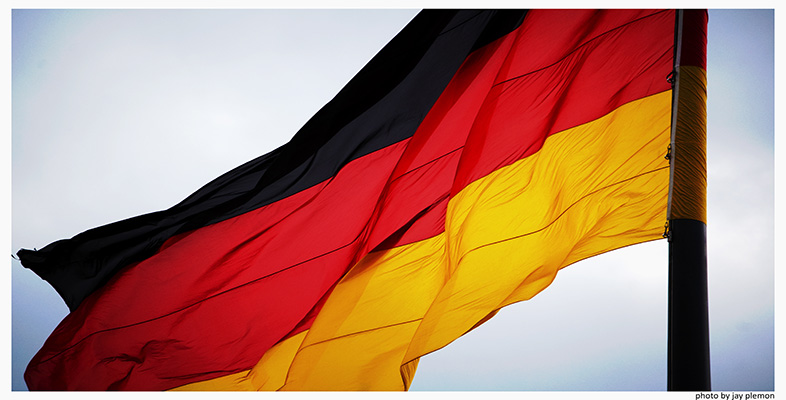1.2 Pronunciation
German uses the same letters as English, with some additions: ‘a’, ‘o’ and ‘u’ can sometimes be found with two dots over them (called Umlaut). They sound slightly different from ‘a’, ‘o’, and ‘u’ on their own. The letter ‘ß’ represents a double ‘s’ and is pronounced like an ‘s’.
At this stage, all the German you need to use is presented in the audio clips. Listen to the words and phrases and try to imitate the pronunciation of the speakers. You will find that German pronunciation becomes very easy to predict after a while. As the course progresses, you will be introduced to some of the rules and asked to practise individual sounds.
Übung 3
How are the following letters or groups of letters pronounced in German? Listen to this audio extract again and, if you like, make some personal notes on the pronunciation. Write down something that will help you remember how to say the word when you see it written down. The first one has been done as an example.
Bitte hören Sie und schreiben Sie.
Transcript: Übung 3
‘eu’ in Deutschland: sounds like ‘oy’ in ‘joy’
‘ü’ in München:sounds like …
‘ch’ in München: sounds like …
‘au’ in Augsburg: sounds like …
‘ö’ in Köln: sounds like …
‘a’ in Hamburg: sounds like …
‘ei’ in Österreich: sounds like …
‘w’ in Wien: sounds like …
‘ie’ in Wien: sounds like …
‘z’ in Zürich: sounds like …
Answer
The answer depends on what you find helpful and on your own mother tongue, accent and knowledge of other languages. Here are some suggestions:
‘eu’ in Deutschland sounds like ‘oy’ in ‘joy’;
‘ü’ in München sounds like nothing in English (it is pronounced right at the front of your mouth, halfway between ‘ee’ and ‘oo’);
‘ch' in München sounds a bit like ‘H’ in ‘Hugh’;
‘au’ in Augsburg sounds like ‘ou’ in ‘ouch’;
‘ö’ in Köln sounds a bit like ‘oeu’ in the French word ‘boeuf ’ (but your lips are more closed and pointed when you pronounce it);
‘a’ in Hamburg sounds like ‘u’ in ‘hum’ (in Standard English);
‘ei’ in Österreich sounds like ‘I’;
‘w' in Wien sounds like ‘v’ in ‘Vienna’;
‘ie’ in Wien sounds like ‘ee’ in ‘see’;
‘z’ in Zürich sounds like ‘tz’ in ‘Switzerland’.
